Abstract
Primary care physicians provide longitudinal care for chronically ill individuals in concert with many other community-based disciplines. The care management of these individuals requires data not traditionally collected during the care of well, or acutely ill individuals. These data not only concern the patient, in the form of patient functional status, mental status and affect, but also pertain to the caregiver, home environment, and the formal community health and social service system. The goal of the Community Care Coordination Network is to build a primary care-based information system to share patient data and communicate patient related information among the community-based multi-disciplinary teams. One objective of the Community Care Coordination Network is to create a Community Care Database for chronically ill individuals by identifying those data elements necessary for efficient multi-disciplinary care.
Full text
PDF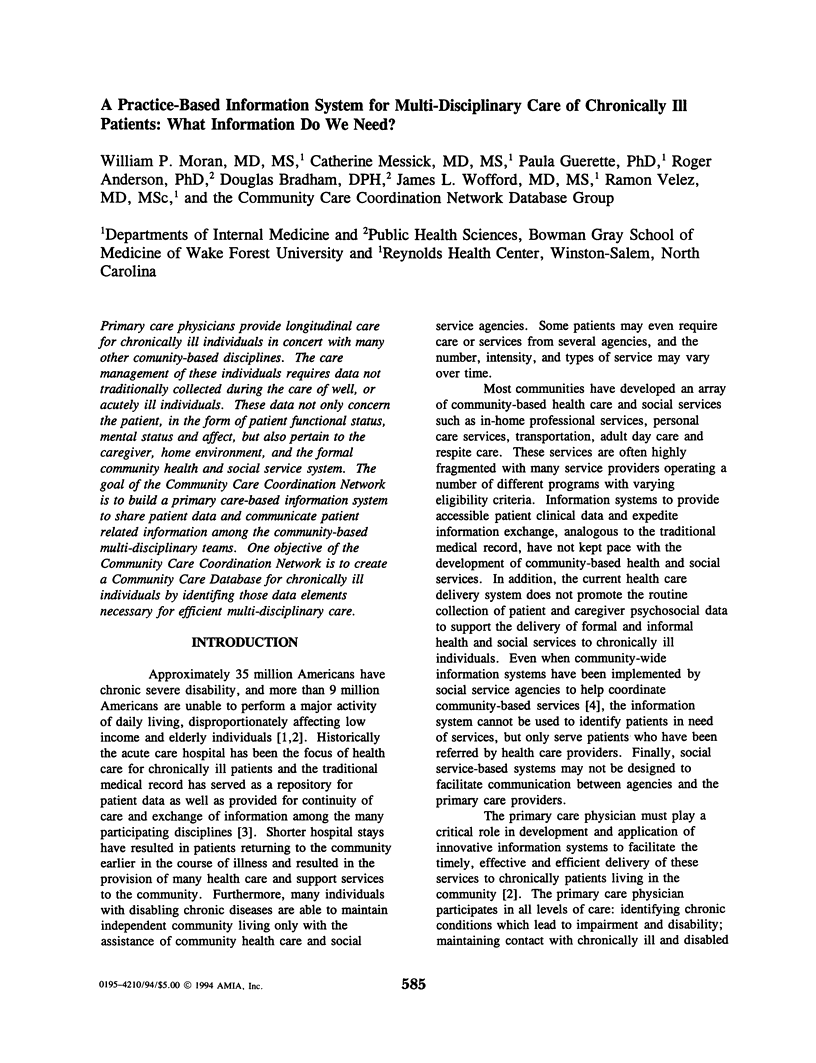
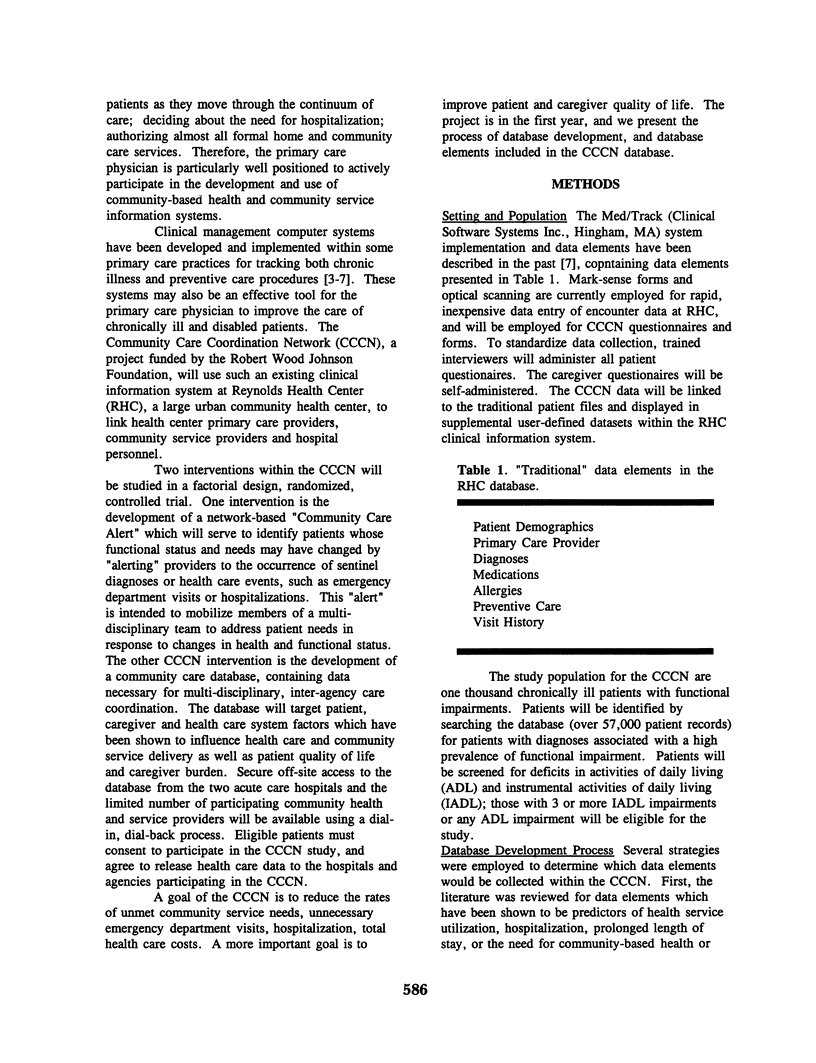
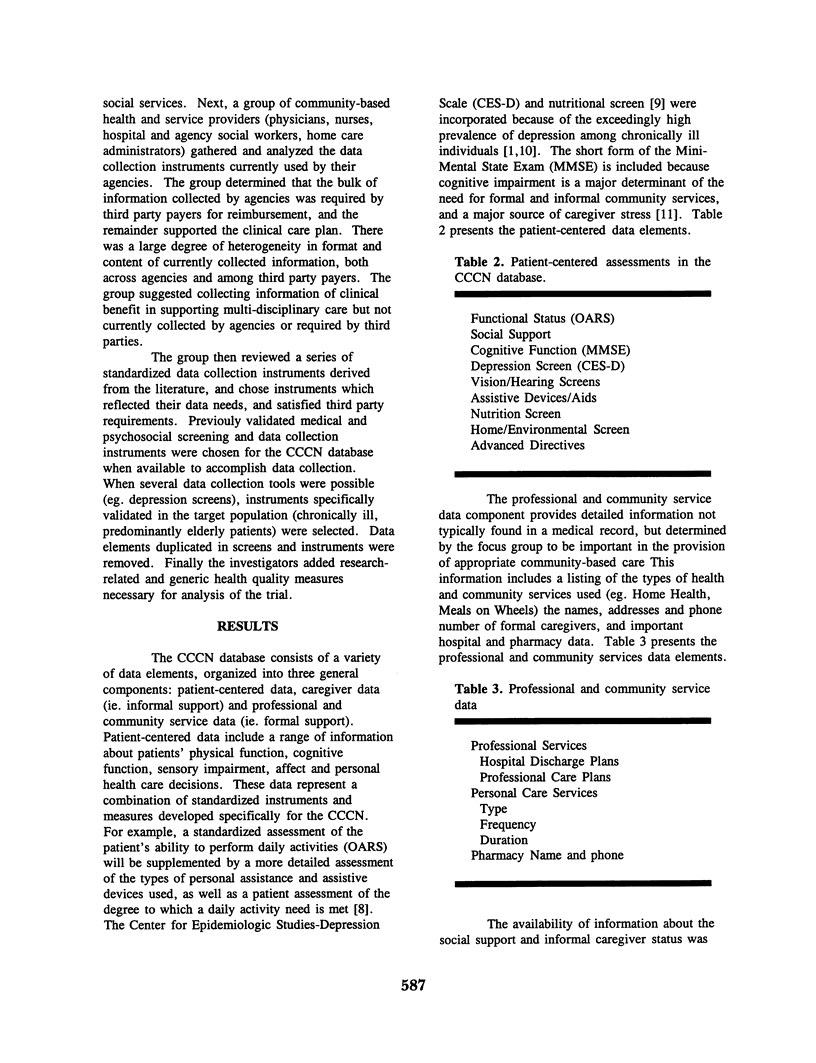
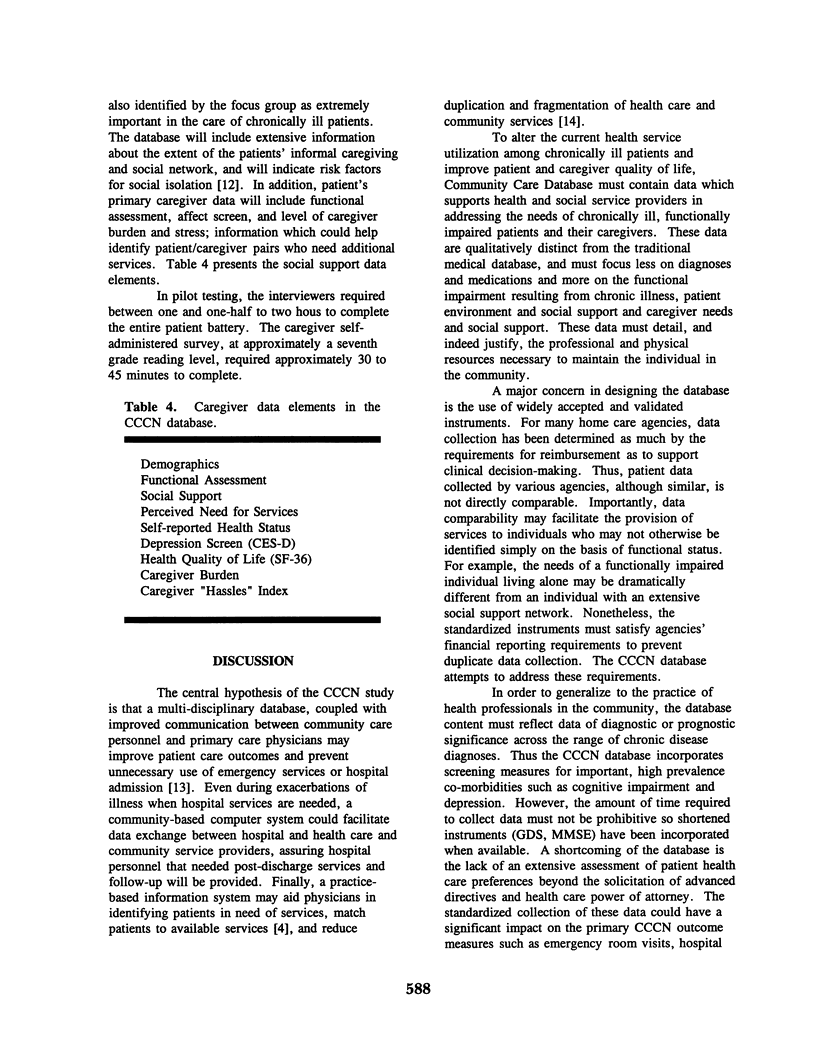
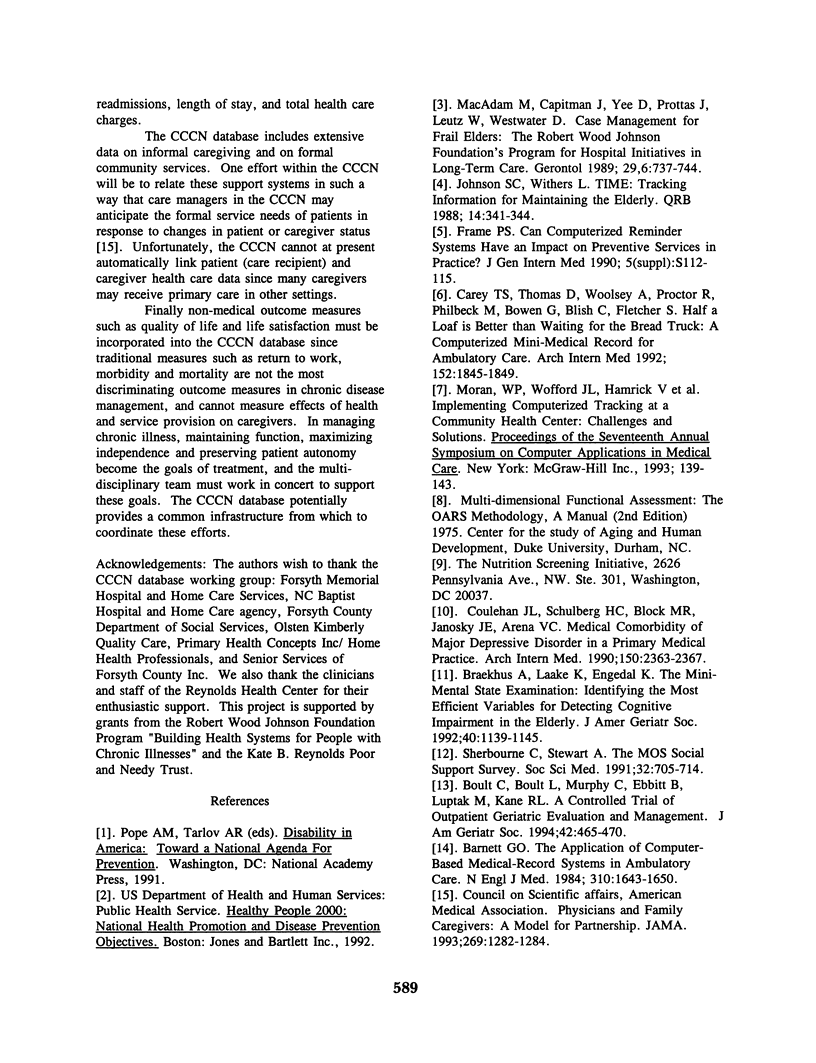
Selected References
These references are in PubMed. This may not be the complete list of references from this article.
- Barnett G. O. The application of computer-based medical-record systems in ambulatory practice. N Engl J Med. 1984 Jun 21;310(25):1643–1650. doi: 10.1056/NEJM198406213102506. [DOI] [PubMed] [Google Scholar]
- Boult C., Boult L., Murphy C., Ebbitt B., Luptak M., Kane R. L. A controlled trial of outpatient geriatric evaluation and management. J Am Geriatr Soc. 1994 May;42(5):465–470. doi: 10.1111/j.1532-5415.1994.tb04965.x. [DOI] [PubMed] [Google Scholar]
- Braekhus A., Laake K., Engedal K. The Mini-Mental State Examination: identifying the most efficient variables for detecting cognitive impairment in the elderly. J Am Geriatr Soc. 1992 Nov;40(11):1139–1145. doi: 10.1111/j.1532-5415.1992.tb01804.x. [DOI] [PubMed] [Google Scholar]
- Carey T. S., Thomas D., Woolsey A., Proctor R., Philbeck M., Bowen G., Blish C., Fletcher S. Half a loaf is better than waiting for the bread truck. A computerized mini-medical record for outpatient care. Arch Intern Med. 1992 Sep;152(9):1845–1849. [PubMed] [Google Scholar]
- Coulehan J. L., Schulberg H. C., Block M. R., Janosky J. E., Arena V. C. Medical comorbidity of major depressive disorder in a primary medical practice. Arch Intern Med. 1990 Nov;150(11):2363–2367. [PubMed] [Google Scholar]
- Frame P. S. Can computerized reminder systems have an impact on preventive services in practice? J Gen Intern Med. 1990 Sep-Oct;5(5 Suppl):S112–S115. doi: 10.1007/BF02600855. [DOI] [PubMed] [Google Scholar]
- Johnson S. C., Withers L. TIME: tracking information for maintaining the elderly. QRB Qual Rev Bull. 1988 Nov;14(11):341–344. doi: 10.1016/s0097-5990(16)30245-7. [DOI] [PubMed] [Google Scholar]
- MacAdam M., Capitman J., Yee D., Prottas J., Leutz W., Westwater D. Case management for frail elders: the Robert Wood Johnson Foundation's Program for Hospital Initiatives in Long-Term Care. Gerontologist. 1989 Dec;29(6):737–744. doi: 10.1093/geront/29.6.737. [DOI] [PubMed] [Google Scholar]
- Sherbourne C. D., Stewart A. L. The MOS social support survey. Soc Sci Med. 1991;32(6):705–714. doi: 10.1016/0277-9536(91)90150-b. [DOI] [PubMed] [Google Scholar]


